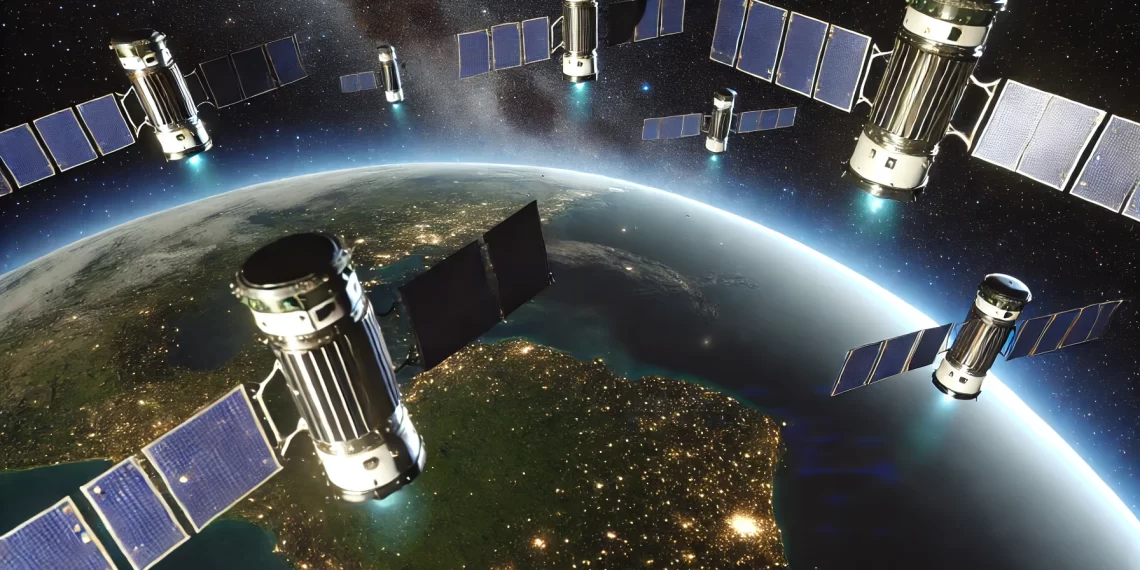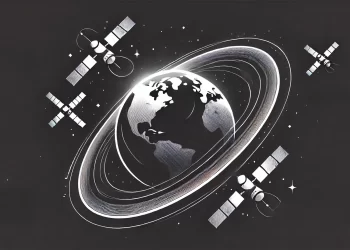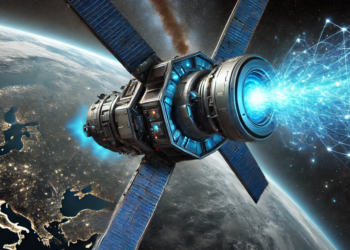Note From FutureWerx:
Any serious consideration of the future of conflict must inherently involve an examination of space as a burgeoning arena of strategic importance. While much of the current discourse is centered on the effects delivered from space, recent developments—such as Russia’s potential ambitions to deploy a nuclear weapon into orbit—highlight the inevitable shift towards considering the implications of conflict occurring within space itself. At FutureWerx, our analytical framework spans from geosynchronous orbits to cislunar space and beyond, recognizing that the concept of key terrain applies equally to celestial mechanics as it does to terrestrial battlespaces.
In this rapidly evolving domain, we are not alone in our analysis. There is a growing body of work dedicated to understanding the mechanics and implications of space conflict. One notable contribution comes from Strategic Analyst and futurist Jennifer Whiteley, who has explored the critical intersection between space conflict and the rise of autonomous defense systems. With her permission, we are pleased to present her insights in the following article, titled: “The Rise of Autonomous Space Defense Networks: The Future of Space Security.”
The article “Space: The Vital Frontier” by Juliana Suess argues that space, often overlooked in defence planning, is crucial for modern military operations. Essential capabilities such as GPS navigation, satellite communications (SATCOM), and space-enabled intelligence depend on space infrastructure. The UK’s defence relies heavily on these systems, yet its sovereign space capabilities are limited, creating a dependency on other countries, notably the US, and commercial providers. Recent conflicts, such as the war in Ukraine, have demonstrated that space is a contested domain, vulnerable to cyber and electromagnetic attacks. To ensure resilience, the UK must develop robust space defence strategies, including better collaboration with commercial sectors and allies. This emphasizes the need to enhance Space Domain Awareness and response capabilities to protect its assets from both environmental and hostile threats. As the UK government revises its defence policies, investing in space should be a priority to secure future military effectiveness.
Signal Description
As space becomes a contested and critical domain for national security, there is a potential movement towards the development of autonomous defence networks in orbit. These systems would operate independently to detect, assess, and neutralize threats to space assets without requiring real-time human intervention. The integration of AI and machine learning into satellite constellations could create a self-sustaining defence ecosystem in space, capable of responding to threats faster than human operators could.
The concept of autonomous space defence networks is speculative and not fully realized, but it is grounded in real developments and ongoing research. Here’s the breakdown:
Signs:
1. AI-Driven Satellite Constellations: Recent advancements in AI have led to the deployment of more sophisticated, semi-autonomous satellite systems capable of performing complex tasks such as orbital maneuvers, threat detection, and data analysis.
2. Automated Space Surveillance: Emerging technologies are being developed to enhance Space Domain Awareness (SDA), where autonomous systems continuously monitor space traffic and potential threats, minimizing the need for constant human oversight.
3. Orbital Defence Prototypes: Some nations and private companies are experimenting with autonomous defence platforms capable of intercepting space debris or neutralizing hostile actions through kinetic or non-kinetic means.
Potential Implications:
- Rapid Response to Threats: Autonomous networks in space could significantly reduce response times to threats, enabling immediate defensive actions against anti-satellite weapons or cyber-attacks, thereby protecting vital space assets.
- Reduced Human Error: By leveraging AI, the risks associated with human decision-making in high-pressure situations could be minimized, leading to more consistent and precise defence actions in space.
- Strategic Autonomy: Nations with autonomous space defence networks could gain a strategic advantage, as these systems would allow them to protect their assets independently of allied support, reducing reliance on shared defence mechanisms.
- Escalation Risks: The deployment of autonomous systems in space raises concerns about accidental or unintended escalation, as AI-driven platforms might react to perceived threats without human judgment, potentially triggering conflicts.
- Legal and Ethical Challenges: The use of autonomous weapons and defence systems in space would likely spur debates over the legality and ethics of such systems, particularly regarding their rules of engagement and decision-making processes.
This signal highlights a shift towards leveraging AI and automation to create self-sufficient defence networks in space, a concept that, while still in its infancy, could redefine the future of space security and alter the balance of power in this increasingly critical domain.








